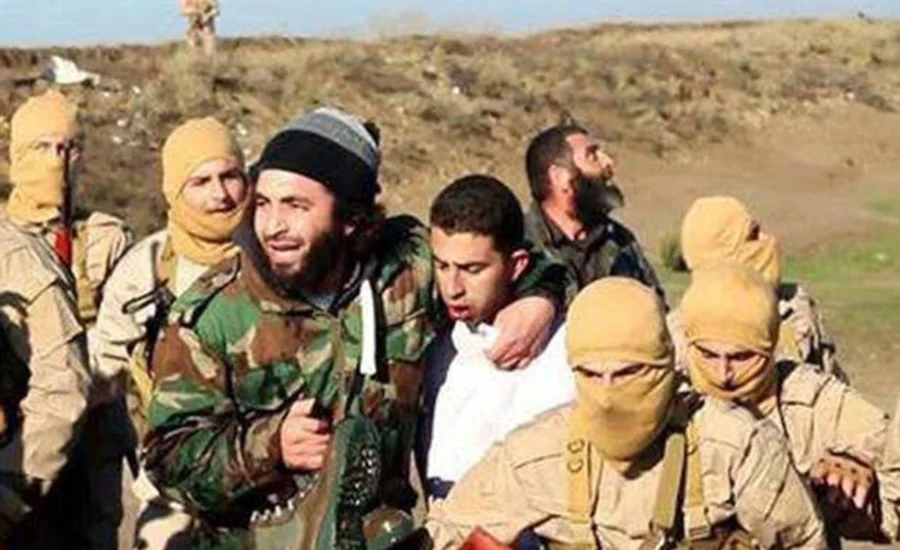Muʿādh Sāfī Yūsif al-Kasāsba was a name that became synonymous with bravery, resilience, and an unbreakable spirit. A Jordanian military pilot whose life was tragically cut short by ISIS in 2015, his story continues to echo through history. More than a mere victim, al-Kasāsba symbolized courage in the face of terror, embodying the dedication of those who fight for peace and stability in an increasingly tumultuous world.
In this article, we will delve into his life, his tragic capture, and the profound impact his death had on Jordan, the Middle East, and the world at large.
Early Life
Muʿādh Sāfī Yūsif al-Kasāsba was born on May 29, 1988, in the city of Karak, Jordan. Raised in a devout Muslim family, he grew up with strong values of faith, patriotism, and a sense of responsibility toward his community. From a young age, al-Kasāsba aspired to serve his country, which led him down the path of joining the Jordanian Armed Forces.
His dream to become a pilot was fulfilled when he enrolled in the King Hussein Air College. His dedication, discipline, and love for flying helped him rise quickly through the ranks. Al-Kasāsba’s commitment to defending his homeland and playing a role in regional stability was unwavering. For many, he represented the ideal Jordanian soldier—loyal, brave, and ready to make the ultimate sacrifice.
The Mission
Al-Kasāsba’s life took a drastic turn on December 24, 2014. As part of the U.S.-led coalition against ISIS, Jordan had committed its air forces to join in airstrikes against the terrorist organization. Al-Kasāsba was one of the elite pilots assigned to these missions, flying his F-16 fighter jet with the intent to combat the growing ISIS threat in Syria and Iraq.
During a mission near Raqqa, Syria, his aircraft malfunctioned, forcing him to eject over ISIS-controlled territory. He was immediately captured by ISIS militants. His capture marked the beginning of a global outcry, as images and videos of the young pilot were circulated by the terror group, heightening fear and uncertainty.
Capture
The capture of al-Kasāsba was a grim reminder of the perils faced by those fighting ISIS. The Jordanian government and his family held onto hope that Muʿādh would be returned alive, negotiating for his release through multiple channels. ISIS, however, had other plans.
In a propaganda campaign, the group used al-Kasāsba as a bargaining chip, making demands and threats that the Jordanian government could not meet. His capture became a focal point in the battle between good and evil, illustrating the depths of ISIS’s brutality.
The Execution
On February 3, 2015, the world learned of Muʿādh Sāfī Yūsif al-Kasāsba’s horrific execution. ISIS had released a video showing the young pilot being burned alive inside a cage—a grotesque display meant to instill terror and demonstrate the group’s cruelty. The barbaric act sent shockwaves across the world, sparking widespread condemnation.
Jordan responded with swift and forceful action, launching an increased number of airstrikes against ISIS targets. King Abdullah II vowed that al-Kasāsba’s death would not be in vain and that Jordan would strike back with full force.
Global Reaction
The execution of Muʿādh Sāfī Yūsif al-Kasāsba was met with universal outrage. Leaders from around the globe, including those from the Muslim world, denounced the atrocity. His death served as a turning point in the fight against ISIS, galvanizing international resolve to defeat the terrorist organization.
For many, al-Kasāsba became a martyr, not only for Jordan but for all who oppose tyranny and extremism. His death highlighted the risks taken by military personnel and the deep personal sacrifices made in the name of freedom and peace.
Jordan’s Response
Al-Kasāsba’s death unified the Jordanian people in mourning and anger. Protests erupted across the country, with citizens calling for retribution and justice. The Jordanian military ramped up its efforts against ISIS, increasing airstrikes and collaborating more closely with the coalition forces. The government executed two prisoners linked to ISIS, a swift and calculated response to the terror group’s actions.
King Abdullah II’s leadership during this time was pivotal. He embodied the nation’s resolve, assuring the world that Jordan would not bow to terror and that al-Kasāsba’s legacy would live on through the country’s continued fight against ISIS.
Legacy
Muʿādh Sāfī Yūsif al-Kasāsba left behind a legacy of heroism and unwavering devotion to his country. His sacrifice resonated far beyond Jordan’s borders, reminding the world of the human cost of the fight against extremism. For Jordanians, he is a symbol of national pride, a man who gave his life for the safety and security of his homeland.
His memory is preserved in the hearts of his family, friends, and countrymen, many of whom continue to honor his legacy through charitable foundations and public memorials. Schools and streets have been named after him, ensuring that his story is passed down to future generations.
Impact on the Fight Against ISIS
Al-Kasāsba’s death was a stark illustration of the barbarity of ISIS and strengthened the coalition’s resolve to defeat the terrorist organization. Jordan’s military efforts intensified, and other nations in the region and beyond began to see the necessity of eradicating such a group.
While ISIS has since lost much of its territorial hold in Syria and Iraq, the threat of terrorism remains. However, the courage displayed by individuals like Muʿādh Sāfī Yūsif al-Kasāsba serves as a reminder that the fight against extremism requires not only military might but also resilience, solidarity, and determination.
Conclusion
Muʿādh Sāfī Yūsif al-Kasāsba’s story is one of incredible bravery, sacrifice, and inspiration. Though his life ended in unimaginable cruelty, his legacy continues to live on in the hearts of many. He stands as a testament to the spirit of those who fight against terror, ensuring that the values of freedom, peace, and justice prevail over darkness.

